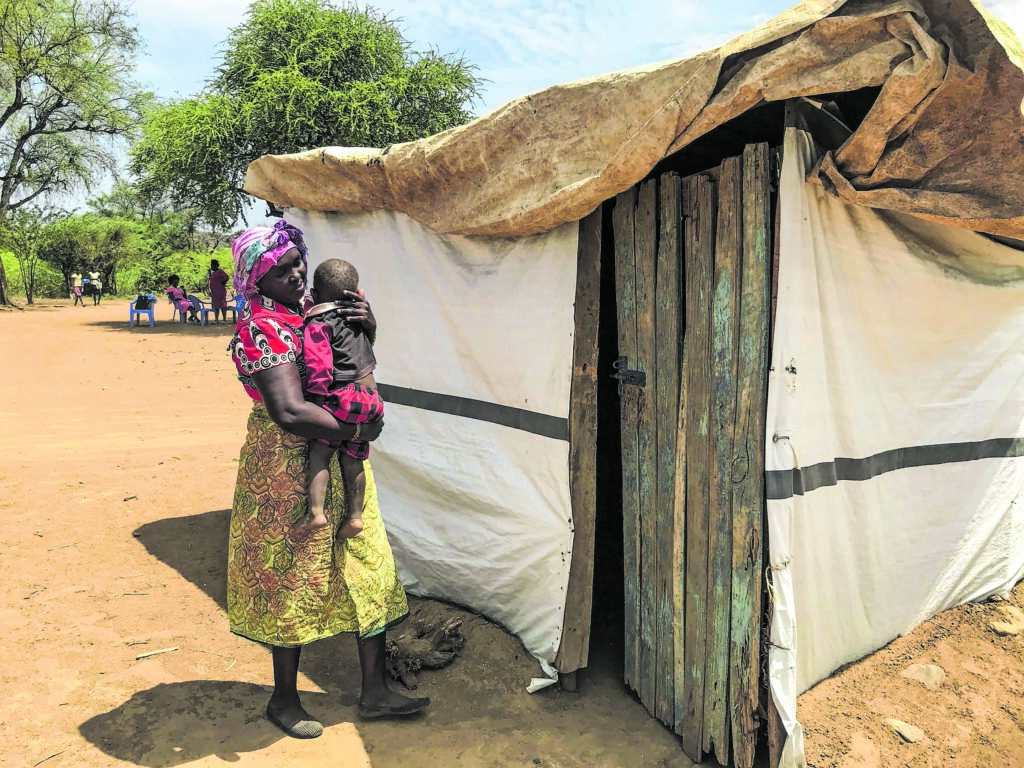Pauline Yator, now a fishmonger in Kambi ya Samaki area along the shores of Lake Baringo
Kenya’s national task force on mental health recommended in July last year that the government declare mental health a national emergency. It pointed to rising levels of depression, death by suicide, post-traumatic stress disorder and substance abuse.
It also said climate change and its effects, such as droughts and flooding, were a key contributor. A hotter world means more sudden disasters as well as more slow onset disasters, where rainfall patterns change and crops fail. This means more stress for people who are already struggling.
The task force noted that 40% of inpatients in the Kenyan healthcare system had a mental illness, and that 1.9-million Kenyans suffered from depression. The country has only 71 psychiatrists for its nearly 50-million people. Not that this is unique — Nigeria has fewer than 300 for a population of more than 200-million.
Elias Fondo, the Kilifi County mental health clinical officer, said that as a result, most mental health cases are misdiagnosed. Or there is no support at all.
After heavy floods last year, Pauline Yator, a mother of seven from Baringo County, said she almost went mad.
“The farm I had called home for nearly 30 years was completely submerged. I was in shock and afraid. For two weeks I walked by the roadside speaking to myself.”
Yator’s four hectare farm had been submerged by Lake Baringo, which had been steadily rising since 2013. Heavy rainfall in 2019 and 2020 amplified the swelling of Kenya’s Rift Valley lakes, displacing more than 5 000 people.
“Questions ran through my mind without answers. How will my children survive? Where do I resettle? It was a difficult time.”
Events such as this are becoming more common.
Abubakar Salih Babiker, a climate scientist at the Climate Prediction and Application Centre attached to the Intergovernmental Authority on Development in East Africa, said that temperatures in that region have increased. Minimum temperatures are 1.2 °C hotter and maximum temperatures are 2°C higher. The western Indian Ocean, along the East African coast, has warmed faster than the rest of that ocean.
Babiker said: “As a result, flooding, droughts, and landslides are happening faster than the community’s ability to recover from previous natural disasters.”
Yator received no psychological support and turned to prayer to recover. Now, she sustains her family as a fishmonger in the Kambi ya Samaki area along the shores of Lake Baringo.
 Lake Baringo had been steadily rising since 2013.
Lake Baringo had been steadily rising since 2013.
Shadrack Chalo, from Garashi village, a food basket in Malindi Coastal Kenya, supported his six children through farming. His village had been experiencing drought since 2019, but the river then flooded after heavy rains upstream. He lost all his equipment and said a few villagers died from strokes that developed from the stress.
“The problem was — where do you start? It takes time to plant and wait for the coconut trees and bananas to mature and earn you money. When all these trees die suddenly, the entire farm is destroyed, all cows are dead overnight from floods.”
Chalo said that some farmers didn’t have the energy to start over again, so “stress and death are inevitable”.
Boniface Chitayi, a consultant psychiatrist with the ministry of health and the president of Kenya’s psychiatrist association, said: “Mental health issues are often forgotten amid the other life-threatening
disasters like the coronavirus, storms, droughts and floods.”
This is when mental health can become life threatening.
Chitayi said an event causing large-scale distress tends to cause higher rates of depression and anxiety. For example, loss of property, loved ones, physical discomfort, uncertainties, job loss and forced migration are difficulties associated with floods and droughts that lead to stress.
All that is amplified with prolonged or repeat stresses, which is exactly what is predicted in climate models — more disasters happen more often.
“Stressful events can trigger most serious mental illnesses like schizophrenia, substance use and abuse as a way of coping with increased stress,” Chitayi added.
The increased stress on the water system, through either drought or floods, means climate change will increasingly be felt by farmers. In sub-Saharan Africa, where 95% of food production relies on rainfall, this means increased risk of crop failure and the stress that accompanies that.
The urban-rural divide exacerbates mental health problems. The ratio is one psychiatrist for half a million people in urban areas and one for three million people living in rural areas.
The country also does not have a separate budget for mental health.
This reporting is supported by the Open Society Foundation for South Africa